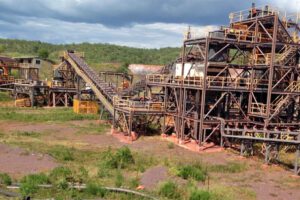The Australian resources sector provides a variety of opportunities, including diverse and interesting work, ongoing skill development, career progression, high camaraderie, and access to new and emerging technologies.
Regrettably the sector also presents countless challenges for employees; isolation, long work hours, sustained concentration, high pressure, absence from family and social supports, and a predominantly male workforce all contribute to an increasing number of injuries and health risks.
While the industry has been proactive in minimising employees’ physical risks, the widely acknowledged psychological risks have not been adequately addressed and require urgent and specific action.
The major concerns and risks for employees fall into five categories:
- Fatigue
- Alcohol
- Mental health
- Stress
- Family/relationship
The occurrence and severity of these issues are increasing at an alarming rate. In many cases multiple issues are present, elevating the risk even further.
Fatigue is particularly dangerous as it leads to decreased ability to judge personal levels of tiredness, and the number of fatigue related injuries at work and at home are increasing. While fatigue may occur as a result of a medical condition or long work hours, it is fatigue from alcohol abuse, depression, eating disorders, sleep deprivation, and stress that needs urgent attention. While education and awareness around management strategies will go some way to solving the issue, greater attention needs to be given to the underlying issues of stress, alcohol use and mental health.
Employees experiencing mental health issues are by far the greatest concern. beyondblue, Sane Australia and all levels of government have recognised that the challenges of FIFO work dramatically increase the risk of mental health issues. All have raised concerns about the increasing risk of suicide and self-harm. The stigma related to mental health issues continues to inhibit employees seeking help, and the lack of awareness and confidence of managers means the issues are often left unattended.
Statistics show an increased prevalence of mental health issues across the industry and the number of suicides is creating a high level of unease. If awareness, education and support are not significantly increased, the issues we are seeing will be the tip of the iceberg. While we talk in statistics, these are not statistics; they are valuable employees with hopes, aspirations and the right to support.
The use and misuse of alcohol both onsite and during time off work is not only concerning, but creates risks for employees and their family. Alcohol is a socially sanctioned and encouraged way of de-stressing, and many drink in response to stress, anxiety and depression. But the effect is short-lived, and the combination of depression and alcohol consumption can lead to deliberate self-harm and increased suicide risk.
Binge drinking is often supported as a way to bond, celebrate, ‘wind down’ or relax. Instead, alcohol makes some agitated, anxious, irritable, unpredictable and more prone to risky behaviour. In many environments a culture of ‘work hard/play hard’ supports, rather than deters, this behaviour. And while alcohol abuse is the most visible concern, use of illicit and prescription drugs are also on rise.
The resources sector’s physical environment can be tough – searing heat, limited facilities, long work hours – and most workers present a tough exterior. But look more closely and fatigue, anxiety, loneliness, and concern for family is likely to be taking a toll.
Maintaining strong relationships from a distance is challenging. Missing family celebrations, absence from children, and not being involved in day-to-day decisions can all be difficult and leave employees feeling lonely, out of control and of diminished importance in their home. These issues, coupled with alcohol abuse, are also leading to a disturbing trend of domestic violence.
While the risks are high, organisations can take action that will deliver measurable results:
- Provide practical information and resources on key issues (beyondblue provide a range of excellent materials on mental health issues with a particular focus on supporting men)
- Undertake education and awareness programs for mental health, suicide and alcohol awareness
- Provide training for managers and employees on how to recognise and deal with issues like fatigue and alcohol management, mental health training, and stress management/resilience
- Provide employee assistance support (in addition to face-to-face, telephone, video and online access, leading industry employers are increasingly bringing this service directly to employees on site). It is particularly valuable to link family members into the support available, and include them in communication on the issues and risks.
While it is not essential to employ every one of these strategies, it is vital to acknowledge the issues and make a start. Your workforce is your most valuable asset and must be supported. In the resources sector, the cost of doing nothing is far higher than the cost of providing essential education, training and support.
Michele Grow
CHIEF EXECUTIVE OFFICER, DAVIDSON TRAHAIRE CORPSYCH (DTC)
“Statistics show an increased prevalence of mental health issues across the industry and the number of suicides is creating a high level of unease.”
PROFILE
MICHELE GROW
Michele has significant expertise in the areas of employee wellbeing and risk management in the workplace. She is highly regarded for her focus on the ‘big five” workplace risk areas of mental health, stress, bullying, fatigue and change.
Michele has written hundreds of articles on achieving workplace excellence. She is a regular presenter on workplace issues and has conducted benchmarking research on the impact of work-related issues on individuals and organisations.
Michele is a Fellow of the Australian Human Resource Institute and the Australian Institute of Management as well as a member of Chief Executive Women and the Australian Institute of Company Directors. She holds tertiary qualifications in HRM, Corporate Management and Business.













Add Comment